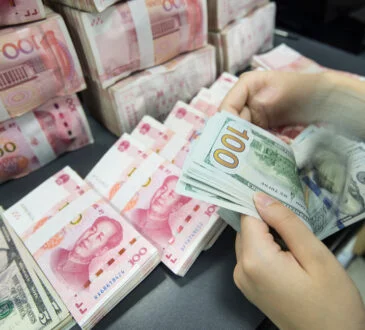Singapore: Asian currencies are headed for their biggest quarterly loss since the Asian financial crisis, having been battered by China’s surprise devaluation of the yuan and the prospect of a US interest-rate increase.
The Bloomberg-JPMorgan Asia Dollar Index, which tracks the region’s 10 most-active currencies outside of Japan, has dropped 4.4% in its worst performance since 1997. Malaysia’s ringgit led the rout with a 15% slide as oil prices retreated and prime minister Najib Razak was caught up in a corruption investigation. The yuan fell the most in 1-1/2 years as an economic downturn worsened in China. Federal Reserve chair Janet Yellen said on Thursday the central bank remains likely to boost interest rates this year.
Get Quick Cash in Minutes!
Best Personal Loan at Lowest Interest Rates
“It’s hard to see how any Asian currency will post sustained, substantial gains in the fourth quarter, with losses versus the US dollar likely to be the norm,” said Sean Callow, a senior currency strategist in Sydney at Westpac Banking Corp. “We expect volatility to remain elevated as Asian policy makers struggle with regional deceleration in growth, and yet more weeks and months of debate over the Fed policy outlook.”
China’s slowdown is hurting exports from the rest of the region, bolstering the case for monetary easing and heightening the risk of a currency war. Taiwan’s dollar slid to a six-year low after its central bank reduced interest rates last week for the first time since 2009. The People’s Bank of China lowered borrowing costs in August for the fifth time in a year, while India announced its fourth cut of 2015 on Tuesday.
Indonesia’s rupiah weakened 9.2% against the dollar this quarter and Thailand’s baht dropped 7.1%, its worst performance since 1999, data compiled by Bloomberg show. Taiwan’s dollar fell 6.8%, the biggest loss since 1997, and South Korea’s won retreated 6.7%. The yuan declined 2.6%, the most since the three months ended March 2014.
An estimated $141.66 billion of capital left China in August after the yuan’s surprise devaluation rattled global markets, exceeding the previous record of $124.62 billion in July, according to a Bloomberg estimate compiled using official figures. Foreign funds pulled a net $17.7 billion this quarter from stock markets in India, Indonesia, Philippines, South Korea, Taiwan and Thailand, the latest exchange data show.
The Singapore dollar retreated 5.5% this quarter, the Philippine peso weakened 3.9% and India’s rupee dropped 3.5%. Vietnam’s dong retreated 3%, its worst performance since 2011, as authorities devalued the currency for the third time this year following China’s weakening of the yuan.
The Asian Development Bank this month lowered its 2015 growth forecast for the region’s developing economies to 5.8% from 6.3%. Taiwan’s exports dropped for a seventh month in August, while those from South Korea and Thailand shrank in each of the last eight months. Indonesia’s shipments contracted for the 11th month in a row. China’s economy, the world’s second-largest, is expanding at the slowest pace since 1990 and a gauge of its manufacturing sank to a six-year low this month.
“For a range of economies, growth is running below potential,” said Robert Minikin, the London-based head of Asian currency strategy at Standard Chartered Plc. “It seems unlikely that local FX appreciation will be desirable from a policy perspective in the quarters ahead.” Bloomberg





